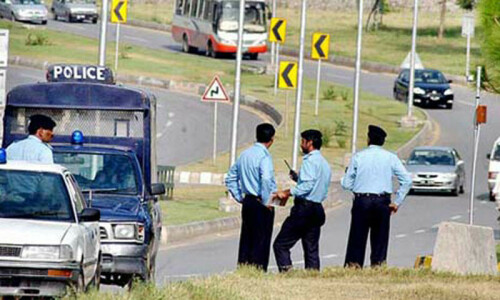ISLAMABAD: The Pakistan elite class determines the political and economic structures of the society, shaping rules, regulations and institutional structures, but its active role in “undermining the impartiality” of these frameworks for the sake of “enormous profits” have resulted in massive social and economic inequality.
This was said by anthropologist and policy adviser by profession Dr Rosita Armytage during the launch of her book titled ‘Big Capital in an Unequal World: The Micropolitics of Wealth in Pakistan’.
Dr Armytage was speaking at the ceremony - moderated by Dr Simbal Khan - at The Black Hole on Monday.
The book is a product of 14-month ethnographic research in Lahore, Karachi and Islamabad and examines the networks, social practices, marriages and machinations of the elite in Pakistan.
Speaking during the session, the author said: “Their role in shaping these laws...and undermining their impartiality and predictability has actively manufactured economic and social inequality which has enabled them to reap enormous profits, hugely disproportionate to those accessible to general public.”
She described the word ‘elite’ as a family/individual with the ability to generate $100 million annually. As per her research for this book, there are approximately 70 families in the country but there could be more, she said in response to a question.
According to Dr Armytage, like their global counterparts, the Pakistani elite has also developed a “great aptitude” for navigating the domestic and international laws and regulations which “impair their ability” to amass wealth. They frame economic structures but choose to live outside the confines of these frameworks and circumvent the laws that go against their interests – the maximisation of profits.
She said there were a few signs of transitioning in the elite and added that there were apparently no chances that the Pakistani elite would replicate the relatively successful models of China and India.
In her conversations with members of the elite class for the research, she said they justified their ‘extra-legal’ ways to fortify their position by pointing to the “capriciousness” of the state.
The “betrayal” that had been experienced at the hands of vindictive regimes was the key component of their rationale to engage in extra-legal acts.
During the question-answer session, Dr Armytage said, during her conversations, she felt like the elite did not have much “concern for environmental degradation”.
In response to another question, she said the elite capture is a result of an “extremely” strong patronage network and people are reliant on existing power structures in the absence of a welfare support system.
Published in Dawn, February 14th, 2023













































